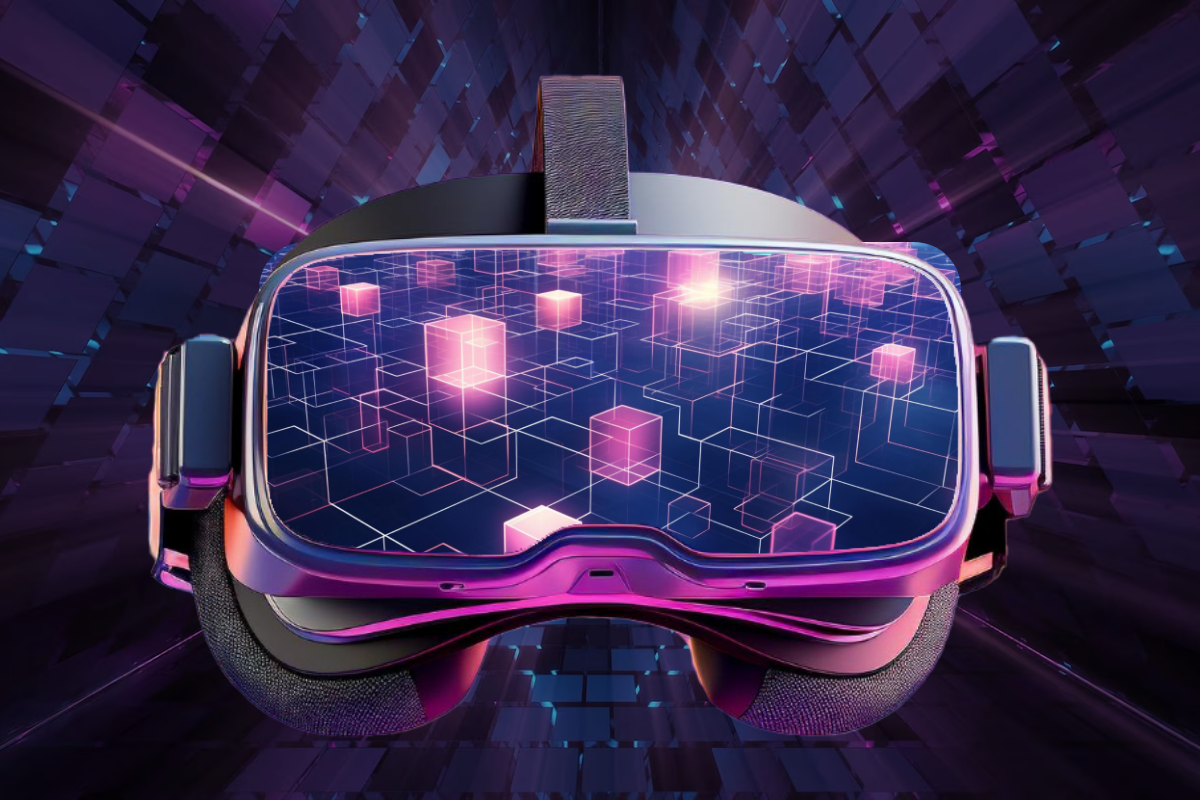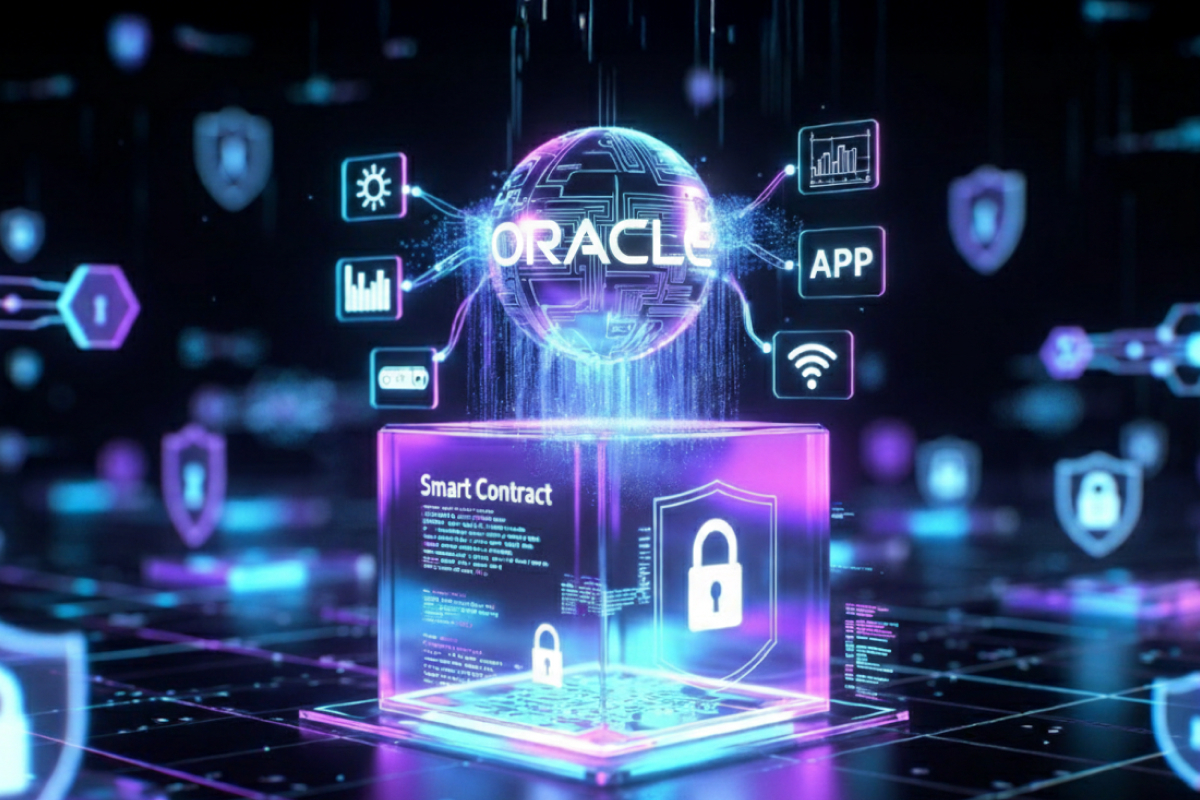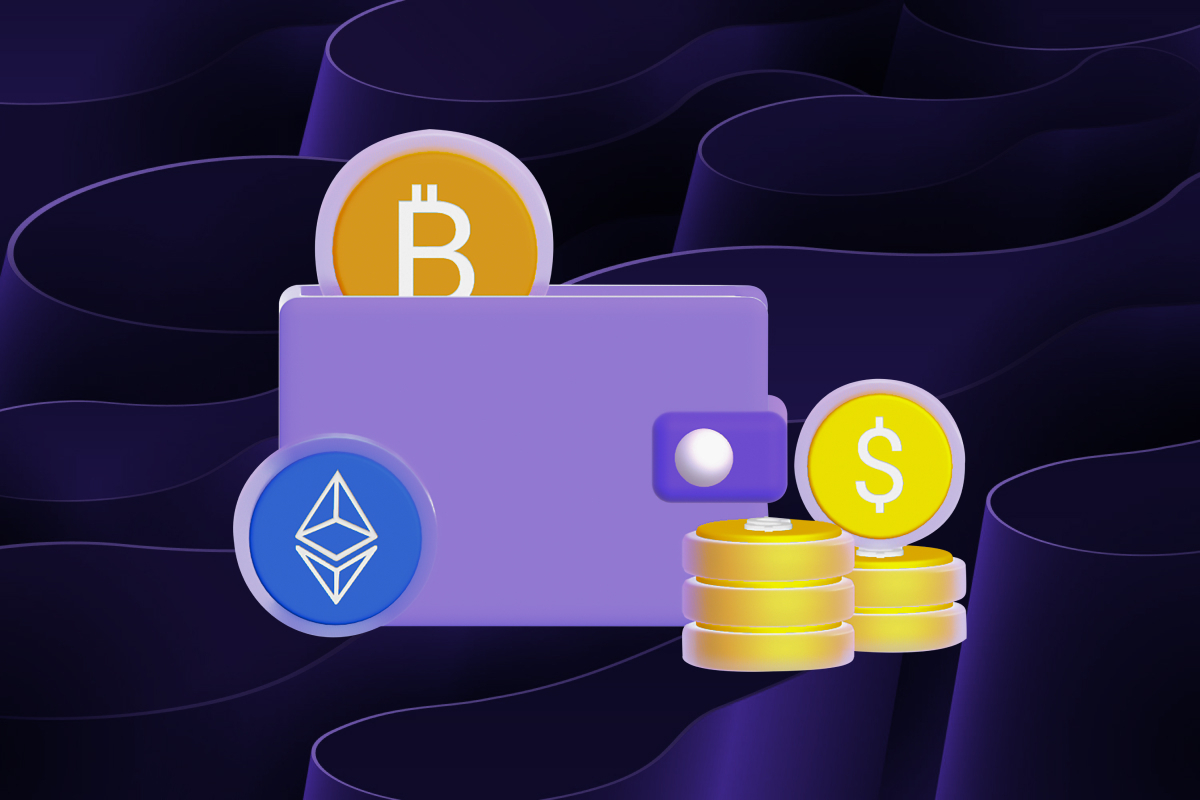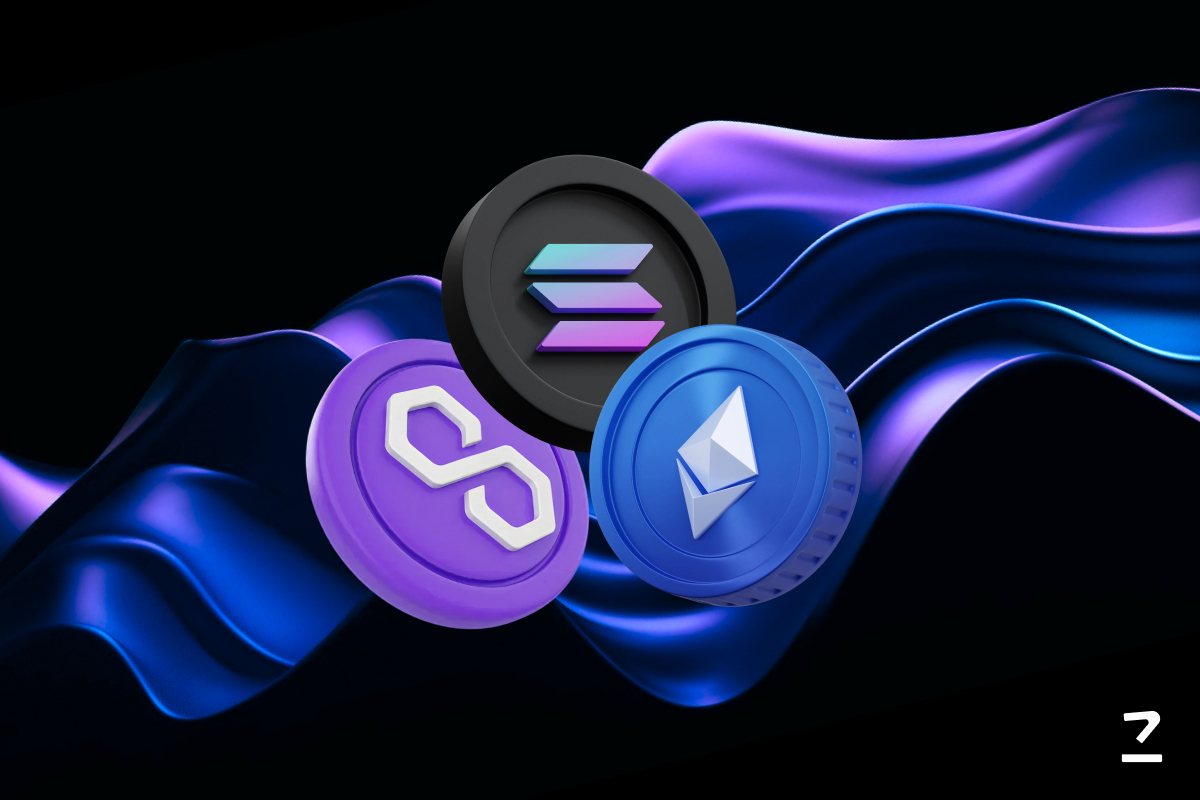SHARE THIS ARTICLE
The Metaverse: How Blockchain is Creating a New Virtual World

Imagine living in a virtual world where you can create, explore, and interact with other people and things, a world where you can own digital assets, play games, watch concerts, and even work and earn money. The idea of the metaverse is showing a strong promise to turn this imagination into a full-fledged reality. In fact, recent advancements have let our futurists state that while the metaverse is still in its early days and fundamental technical barriers exist, the metaverse is certainly coming. And it will arrive with a bang.
What is Metaverse
The term ‘Metaverse’ was first coined by science fiction author Neal Stephenson in his 1992 novel Snow Crash. And if we come to define the metaverse, it can be thought of as a collective shared space that includes the digital world, the physical world, and the human imagination. Unlike popular belief, it is more than a single online platform or game; it is a network of interconnected environments that one can access through different devices like computers, smartphones, VR headsets, and AR glasses. Essentially, the idea is to leverage expert blockchain and metaverse app development services to create an immersive and interactive experience that blurs the boundaries between reality and fantasy.
Core Attributes of Metaverse
-
Persistent: The metaverse is always on and evolving, with no breaks or resets.
-
Shared and participatory: It is open to access for all offering numerous opportunities for interaction and collaboration.
-
Economic and creative: Create, exchange, and own value numerous forms of expression and innovation.
-
Hybrid and immersive: It is a blend of physical and digital realities that can be connected and experienced utilizing various devices and platforms.
-
Diverse and inclusive: It offers various types of content and experiences to choose from, reflecting the diversity and inclusion of its users.
-
Interoperable and compatible: It is a network of interconnected environments, enabling easy transfer and usage of data, assets, content, and other elements.
However, this leads us to the question – how can we develop such a complex and dynamic world while ensuring it is open, decentralized, and secure? Furthermore, how can we protect the rights and interests of the users and creators of the metaverse? This is where blockchain technology comes in.
As a distributed ledger system that records transactions and data in a transparent, immutable, and verifiable way, blockchain shows tremendous potential in realizing the vision of a fully functional and interoperable metaverse. It even ensures trust and efficiency by enabling peer-to-peer transactions without any intermediaries. Moreover, it enables smart contracts, which are self-executing agreements that can enforce rules and conditions in the digital world.
Role of Blockchain Technology in Advancing Metaverse
There are numerous ways in which blockchain can provide the foundation for the metaverse.
Creation and Ownership of Digital Assets
Blockchain technology allows for the creation of digital assets, such as avatars, skins, items, land, and art. These assets are represented by unique and indivisible tokens known as non-fungible tokens (NFTs). Being recorded on the blockchain, NFTs ensure authenticity, provenance, and ownership. Users can have true ownership of these assets and can easily transfer them across different virtual environments or platforms, fostering interoperability and value transfer.
Governance and Monetization
Blockchain can significantly enhance the governance and monetization models of the metaverse. For instance, it can enable decentralized autonomous organizations (DAOs), which are entities governed by code and can make decisions, set rules, and manage resources without the need for a central authority. In the metaverse, DAOs can be utilized to determine policies, fee structures, and incentives for users and creators. This democratized governance lets the community collectively shape the future of the metaverse and ensure transparency and fairness in decision-making.
Security and Privacy
Blockchain can considerably elevate the security and privacy aspects of the metaverse by protecting user data and identities through cryptographic techniques, such as encryption and zero-knowledge proofs, which can verify information without revealing it. Then there are Decentralized Identity (DID) systems that are built on blockchain, allowing users to control their own sovereign and portable digital identities and enabling them to verify information without revealing unnecessary personal details.
Provenance and Authenticity
The immutable ledger of blockchain can help establish the provenance and authenticity of virtual assets in the metaverse. This is particularly crucial for virtual art, collectibles, and other digital creations, as NFT can verify the origin and ownership history of these assets. This minimizes the risk of counterfeits and ensures appropriate credit and compensation for creators.
Virtual Economies and Micropayments
By facilitating seamless micropayments within virtual environments, blockchain can allow users in the metaverse to earn tokens or cryptocurrencies for participating in activities, creating content, or offering services. Users can leverage decentralized finance development services and use these tokens to purchase virtual goods, pay for experiences, or trade with users. Smart contracts can further facilitate frictionless and secure value exchange by automating these transactions.
Gamification and Tokenization of Activities
Incorporating blockchain gaming in the metaverse introduces an exciting gamification layer, where user engagement and participation are rewarded through the tokenization of activities and achievements. As the users complete quests, participate in events, or collaborate with others, they earn tokens or rewards. These digital badges of accomplishment can be exchanged to unlock special items, gain access to exclusive content, or traded with fellow users, fostering a dynamic virtual economy driven by creativity and interaction
Openness, Decentralization, and Collaboration
The decentralized nature of blockchain promotes openness and collaboration in the metaverse by enabling new economic models, social interactions, and cultural expressions, fostering innovation and creativity. This leads to the creation of a more inclusive environment by rewarding content creators, artists, and developers, thus letting a diverse range of participants contribute to and benefit from the metaverse’s growth. Moreover, the transparency and traceability of blockchain can provide protection against centralized control and censorship, ensuring that the metaverse remains a space for creativity and self-expression.
Popular Metaverse Use Cases
The metaverse opens up limitless possibilities both for individuals seeking new horizons and institutions aiming to transform the way they operate. From education and entertainment to commerce and healthcare, the metaverse can potentially reinvent multiple facets. Let’s explore some of the most compelling use cases of the metaverse.
Education
Within the metaverse, education takes a transformative turn, enabling immersive and interactive learning experiences that can enhance quality as well as accessibility. For instance, educators can utilize the metaverse to create customized and engaging lessons that can cater to different learning styles and needs. Students can visit virtual museums, historical sites, or natural wonders using VR headsets, or interact with holographic teachers and classmates using AR glasses.
Gaming
The metaverse certainly reshapes gaming as we know it. Leveraging the potential of NFTs, gamers can personalize avatars and worlds, which are beyond usual genres and platforms. Multiplayer experiences become diverse and boundary-breaking, while community building is revolutionized with enhanced interaction capabilities in shared digital spaces.
Commerce
The metaverse can lead to new and exciting commerce opportunities, reinventing how people buy and sell goods and services. For instance, users can shop for physical and digital products in VR malls or markets, and leverage AR mirrors for virtual try-ons. Users can even sell their own creations, such as NFTs, games, or apps in the metaverse marketplace.
Tourism
Reforming exploration as we know it, the metaverse offers armchair travelers as well as globetrotters novel and immersive experiences. Users can traverse global diverse destinations and cultures through VR headsets and AR can add layers of information and guidance to real-world journeys. Users can even share their adventures through livestreams, connecting with others worldwide.
Healthcare
In the metaverse, healthcare reaches unprecedented heights of innovation, improving the well-being and quality of life of patients. For instance, patients can access remote consultations, diagnoses, and treatments, or receive personalized feedback and recommendations using AI assistants.
Noteworthy Metaverse Projects that Leverage Blockchain Technology
Essentially, blockchain is more than just a technology, it represents a philosophy that values openness, decentralization, and collaboration. And using this technology, there are numerous projects already working on building different aspects of the metaverse. Here are a few examples:
Decentraland: Launched in 2017, this project is one of the oldest and largest metaverse platforms. It allows users to buy parcels of land with the MANA token and use the Builder tool or the SDK to create 3D scenes and interactive content. Decentraland hosts various types of events, including art exhibitions, concerts, games, and conferences. It also comprises different districts, such as Vegas City, Crypto Valley, and Dragon City, that the users can explore and are managed by the community. A non-profit organization called the Decentraland Foundation governs the platform and even oversees its development and maintenance.
Sandbox: Founded in 2011, the project is a voxel-based gaming platform that lets users utilize the Game Maker tool or the VoxEdit software to create their own games and experiences. Users can use the SAND token to buy land and host their creations. They can even rent it out to other users. Sandbox also features a marketplace where users can buy and sell assets, such as characters, items, and environments, that are represented by NFTs. With this, it aims to create a decentralized gaming ecosystem that allows its users to play, create, own, and govern.
CryptoVoxels: CryptoVoxels, developed by a small team led by Ben Nolan (a former game developer and VR enthusiast), is typically a virtual city that is inspired by voxel art and cyberpunk aesthetics. It was started in 2018 and enabled users to buy land with ETH and use the web-based editor to build structures and display art using NFTs. In the CryptoVoxels platform, users can explore different neighborhoods like Origin City, Proxima, and Frankfurt - all having different themes and styles.
Somnium Space: Somnium Space is a VR platform launched in 2018, offering realistic and immersive experiences. Its native token is CUBE; which users can utilize to buy virtual real estate. They can even create custom environments and applications using the Builder tool or Unity SDK. The platform allows the users to access it from different devices like PCs, VR headsets, Oculus Quest, or web browsers and even supports various social features, such as avatars, gestures, voice chat, and events. Essentially, Somnium space is powered by blockchain technology and strives to create a persistent and open VR world.
Challenges and Opportunities
The projects we explored above are only scratching the surface of what is possible in the metaverse. However, there are still many challenges and opportunities to overcome and explore in this emerging field.
-
Scalability: It is still unknown if the metaverse can handle millions of users and transactions without compromising performance or security.
-
Interoperability: With most ongoing projects restricted to a particular platform, it is still uncertain how the metaverse will be able to seamlessly connect different platforms and protocols without creating silos or fragmentation.
-
Accessibility: As of the current situation, it is difficult to ascertain whether the metaverse is going to be cost-effective and user-friendly for everyone regardless of their location or device.
-
Creativity: While showing a strong promise, it is not ensured that the metaverse can unleash the full potential of human imagination and expression without limiting or censoring them.
-
Ethics: It is one of the main challenges for the metaverse to ensure that it respects the rights and responsibilities of its users and creators without violating or exploiting them.
This implies that the metaverse is not just a technological innovation but a social experiment that will shape our future. We have in our hands an opportunity to create a novel virtual world that is more open, inclusive, and creative than ever before. But we also have the responsibility to make sure that this world is safe, fair, and sustainable for everyone.
Final Thoughts
Rather than a destination, the metaverse is a journey – one which we can embark on together, using blockchain as a guide. It is a realm brimming with boundless opportunities, and as we stand on the precipice of the metaverse, one technology emerges as the cornerstone of its construction – blockchain. Blockchain, as a transformative force, has the potential to shape the metaverse into a digital reality that is not only innovative and immersive but also secure, decentralized, and equitable.
As we ascend ahead into this digital frontier, we must ensure that the metaverse is built on the principles of safety, fairness, and sustainability. Blockchain's capacity to establish ownership, enable secure transactions, and aid decentralized governance positions it as a vital tool in this endeavor.
At Codezeros, we understand the pivotal role of blockchain in crafting the metaverse and our proficiency in Web3 development services empowers us to harness the full potential of blockchain technology, creating an environment that celebrates diversity, protects identities, and empowers users.
If you’re ready to Step into this future with us - where blockchain paves the way for a metaverse that transcends boundaries and limitations, let’s collaborate and we will help you discover the possibilities of blockchain-driven metaverse development.
Post Author

As a distinguished blockchain expert at Codezeros, Paritosh contributes to the company's growth by leveraging his expertise in the field. His forward-thinking mindset and deep industry knowledge position Codezeros at the forefront of blockchain advancements.
Embrace the Metaverse through blockchain innovation
If you're looking to explore the potential of metaverse and understand blockchain's role in it, we can assist you with our blockchain and Web3 expertise.
Blogs
Our Latest Blogs
Discover valuable industry insights and stay up-to-date with the latest updates by exploring our curated collection of recent blog posts.
Let us know your requirement
We know ideas matter, we are the product of one. We Provide Full Assistance In Your Business



